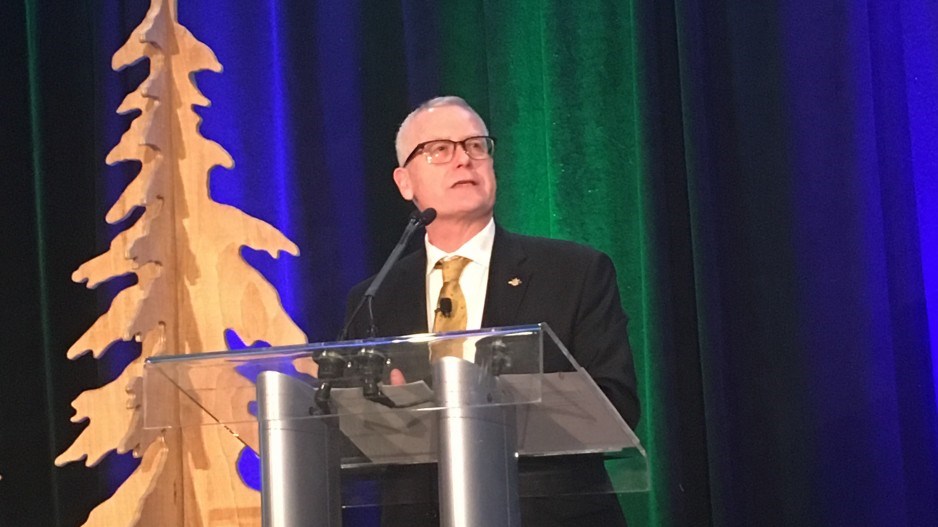B.C. Forestry Minister Doug Donaldson updated media on his trade mission to Japan and China, fielding questions amidst local concerns of mill closures and more global apprehensions about furthering trade with the Chinese during a diplomatic row.
Donaldson said he did not meet with any Chinese government officials on his Shanghai leg of the five-day trip that concludes Friday. Instead, meetings were held with construction businesses and industry representatives — although some of them were Chinese state-owned enterprises.
“The focus of discussions was on future and current opportunities and the quality of wood products we’re supplying. There weren’t any political discussions,” said Donaldson, who cancelled a trip to China last December, a week after the RCMP arrested Huawei CFO Meng Wanzhou in Vancouver to face an extradition hearing as a result of U.S. criminal charges.
Donaldson, the minister of forests, lands, natural resource operations and rural development, was asked about his change of direction.
“Last year we were in the first days of the diplomatic dispute unfolding when we were in Asia. We said we would come back.
“Over the past year, time has cooled tensions between the countries on that diplomatic dispute,” he said.
However, since Donaldson cancelled, China went on to – seemingly – arbitrarily arrest Canadians Michael Kovrig and Michael Spavor —and there is widespread concern they are being tortured while incarcerated with limited ability to communicate.
Donaldson maintained his mission to Shanghai was economic.
“We want to make sure we continue to diversify our markets. Japan and China are part of that diversity.”
He was also asked if his ministry has concerns about pushing for more trade with China, considering the Chinese have, since Donaldson cancelled last year, used retaliatory trade measures to handcuff Canadian canola and pork exporters who are dependent on the Chinese market.
“I’ve never had any indication from the meetings we’ve had…of a tariff issue now or into the future,” said Donaldson. “They [businesses] are very eager to talk about wood and wood supply. So nothing on that front in particular,” he said.
Donaldson said some groups he met with were from state-owned enterprises, although exactly which ones were not disclosed.
When asked if he knew if B.C. wood products were ending up in Xinjiang province to be used to mass incarcerate Muslims, Donaldson replied that he didn’t know.
He said his meetings largely focused on businesses to the east and north of China, not in the far western reaches of the country where the “re-education camps” are being built.
“I haven’t seen any materials used in that sort of application,” said Donaldson.
As for why China remains a good trading opportunity, he said he learned that the floor space being developed every year is 1.4 times the size of the Lower Mainland and the majority of that construction is in the residential sector.
Donaldson said the tour’s Japanese leg would focus on wood pellet exports to assist Japan in reducing its dependence on nuclear fuel.
The government was forthright before the mission, saying the team would meet with Sumitomo, a large Japanese business group.
In 2018, all forest products exported to China from B.C. totalled $4.14 billion. Likewise, all forest products exported to Japan totalled $1.62 billion, according to the provincial government.
International trade critic Teresa Wat did not respond to requests for comment on Donaldson’s mission.




